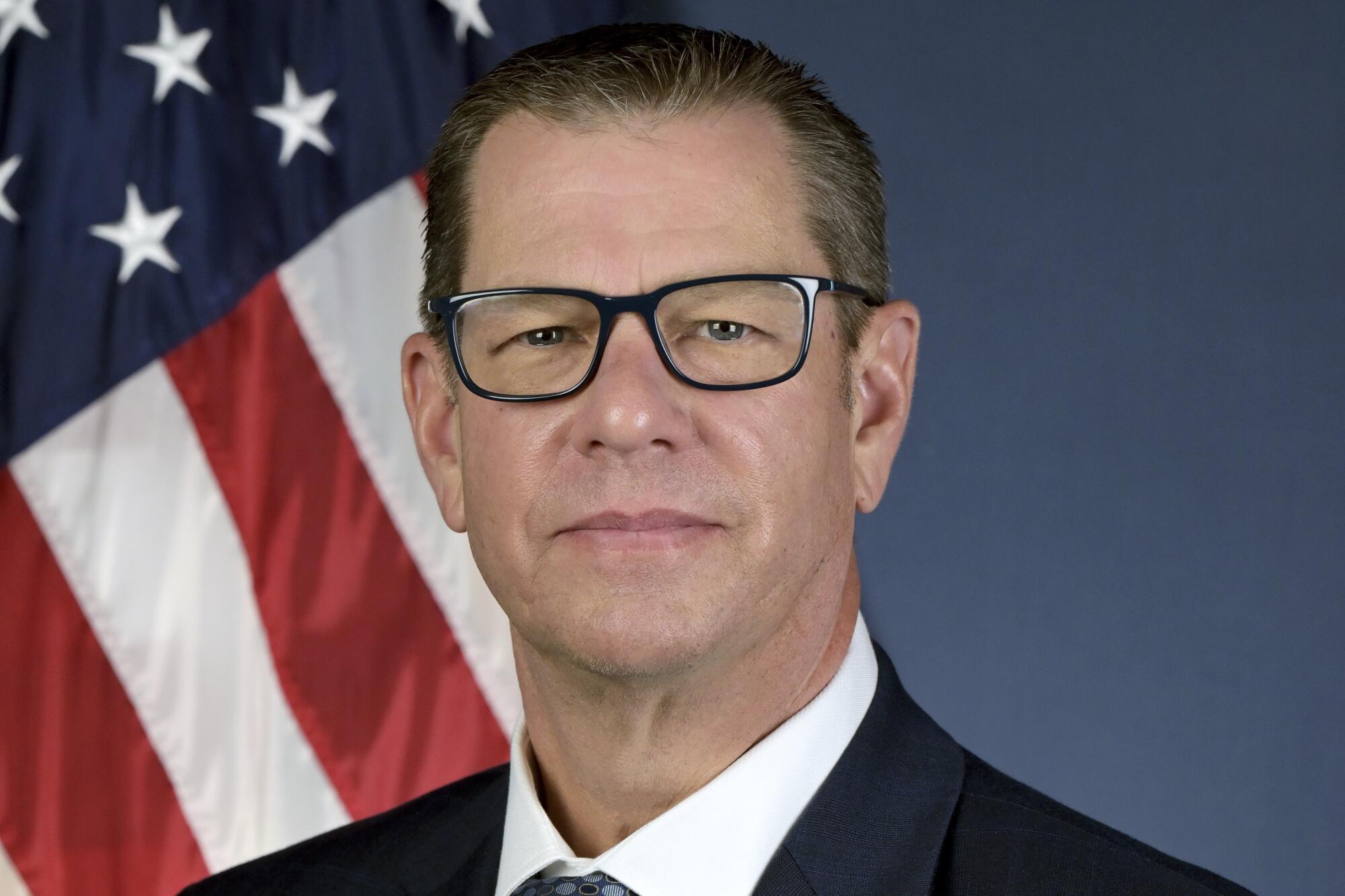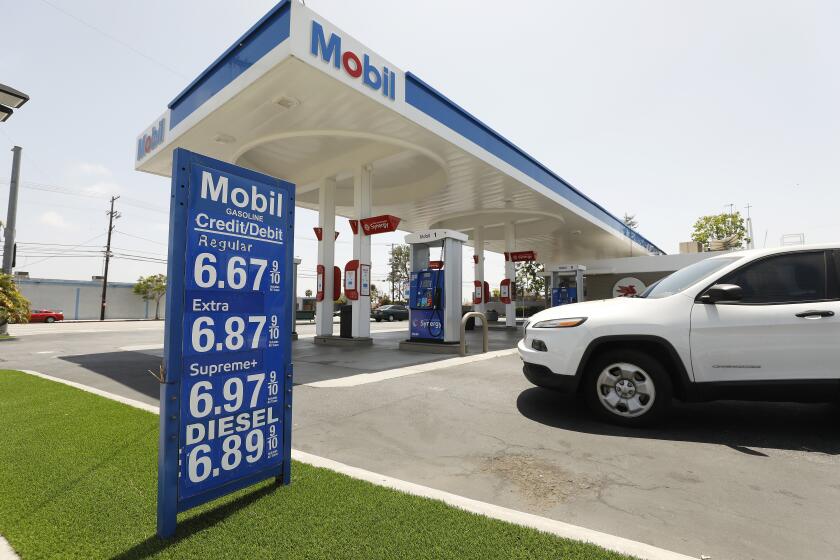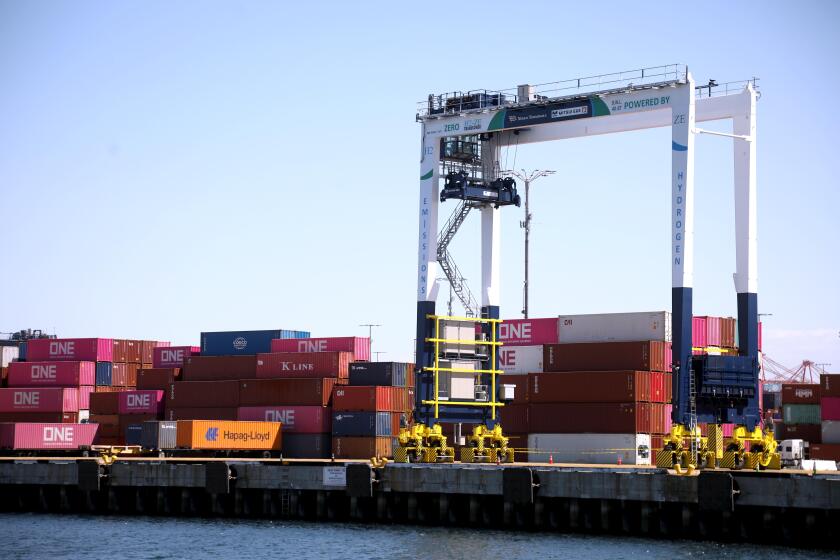
- Some legislators are accusing the California Air Resources Board of a lack of transparency.
- Some analysts estimate that a proposed change to CARB’s low carbon fuel standard could increase gasoline pump prices by as much as 65 cents a gallon.
- Some legislators are questioning whether CARB has become too powerful and requires more oversight.
As Gov. Gavin Newsom wages a high-profile campaign to prevent sudden spikes in gasoline prices, California air regulators are quietly pushing through a policy change of their own that could raise pump prices by almost a half-dollar a gallon or more.
Newsom recently called a special legislative session to consider controversial new controls on state oil refineries, and the California Air Resources Board — the state agency tasked with regulating planet-warming emissions — soon will consider stricter limits on the carbon intensity of fuels.
In September of last year, CARB estimated that the change could lift gasoline prices 47 cents a gallon, or $6.4 billion a year.
Other analysts put the price even higher — 65 cents a gallon, or $8.8 billion a year.
Now, as CARB nears a November vote on its low carbon fuel standard, or LCFS, the agency is backing away from its price hike forecast. Recently, an air board official told legislators that the 47-cents-a-gallon estimate was just a “snapshot” based on a forecasting model that “can never capture real world conditions.” However, the agency has refused to offer a revised estimate to the public.
Gov. Newsom wants to mandate minimum supplies of gasoline at California-based refineries as a hedge against price spikes.
Legislators from both parties are now voicing frustration over what they say is CARB’s troubling lack of transparency.
Some legislators are questioning whether the air board has become too powerful and requires more oversight from elected officials.
“For me, this special session has been about ensuring that gas prices are going down,” said Assemblymember Corey Jackson (D-Perris). “And certainly, if CARB is creating regulations that will increase gas prices, we’re going to have to take a look at that and see if we have to rein in their authority.”
What concerns him most, Jackson said, is the board’s resistance to acknowledging the consumer costs of its forthcoming policies. “The increased quality of our air may be worth higher prices,” he said, but he doesn’t understand how keeping forecasts under wraps encourages public debate over government policy.
Assemblymember Joe Patterson (R-Rocklin) shares Jackson’s concern. “Maybe the cost is worth it because we’ll have cleaner air,” he said. “But how do you make informed decisions if you don’t want to know about all the possible outcomes?”
He also questioned the timing of the special session. “It just feels like the governor is more concerned about sticking it to the oil companies than he is about the actual costs of gasoline.”
Dozens of Californians are part of a class action lawsuit filed in July against Toyota. They claim the carmaker’s salespeople misled them about the state’s unreliable hydrogen refueling infrastructure.
Assemblymember Blanca Rubio (D-Baldwin Park) was traveling and unavailable for an interview, but emailed the following: “While the Legislature is currently working to address petroleum price spikes through the public process, it is unfortunate CARB is unwilling to provide an estimate of the monetary impacts amendments to the LCFS will have. This process is intended to be public and collaborative, but the Legislature will struggle to make significant positive impacts to fuel prices if CARB is unwilling to address the role their regulations play in determining prices.”
The air board’s November vote centers on amendments to the LCFS, a carbon market program that took effect in 2011. The program penalizes refineries that make high carbon fuel, such as diesel and gasoline, and benefits makers of lower carbon fuels such as renewable diesel.
The amendments would impose far stricter limits on the carbon intensity of fuels, leading to far higher costs for refineries to buy credits to comply with the law. Extra costs are passed through to consumers at the pump. But the air board won’t talk about how much that might be.

CARB’s chief, Steven Cliff, told The Times that no new numbers will be forthcoming because “what we are not equipped to do is analyze what the effect would be on retail gasoline prices.” Instead, “we look at all the economic impacts” including economic growth, job creation and public health.
On that basis, Cliff said, the amendments are a net positive for Californians.
Asked whether estimating fuel costs and releasing the figures might help inform public policy, Cliff said: “We put out the analysis that is mandated by law.”
CARB critics believe fuel price transparency is required so lawmakers can weigh climate policy trade-offs and ultimately answer to their constituents.
In the race to decarbonize energy and fuel, the federal government is spending billions to create hydrogen economies. California will be one of several hydrogen hubs — here’s what that will mean.
It’s not only legislators who are concerned about CARB’s approach, however.
Danny Cullenward is a carbon markets expert and vice chair of California’s Independent Emissions Market Advisory Committee. He’s the analyst that used data also available to the air board to come up with his estimate of per-gallon costs up to 65 cents in the near term and possibly much higher in the long term for policies under the air board’s consideration.
Cullenward said that CARB needs to release more information, and that the air board in November will be making an “opaque regulatory decision that will take place three days after the election,” when media attention will be elsewhere.
On Monday, Cullenward released a paper written for the Kleinman Center for Energy Policy at the University of Pennsylvania on the fuel standards issue. “Rather than discuss these implications openly, the regulator has distanced itself from its own initial assessment of costs,” he wrote.
Cullenward is considered a champion of carbon reduction, but sometimes takes flak when he questions the efficacy of some carbon market programs. The air board’s fuel standards policies, he believes, favor lower-carbon biofuels over far cleaner electrification of transportation.
He’s not surprised that the Legislature is suddenly paying more attention to CARB. Although the fuels program “is regularly reviewed and updated every few years, it has not been guided by specific legislation since implementation — despite its evolution into a multibillion-dollar market with substantial environmental and economic consequences,” he wrote in his paper.
That could change.
“I think you’re going to start seeing a greater discussion about our willingness to give our authority to CARB’s executives, and even rein in the powers we’ve given away in the past,” said Jackson, the Assembly member.
Toward a more sustainable California
Get Boiling Point, our newsletter exploring climate change, energy and the environment, and become part of the conversation — and the solution.
You may occasionally receive promotional content from the Los Angeles Times.










